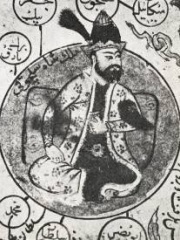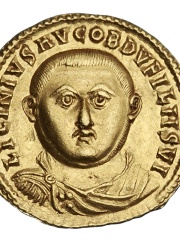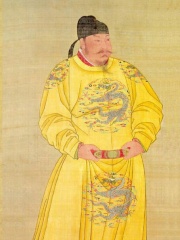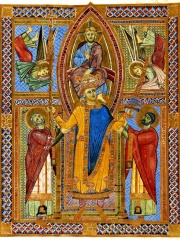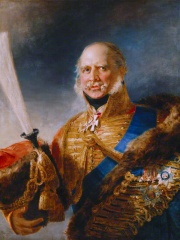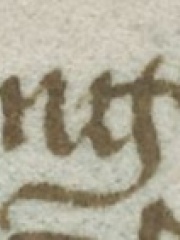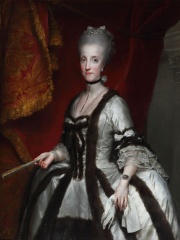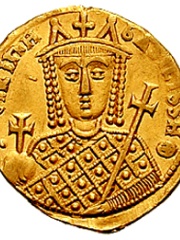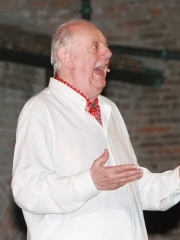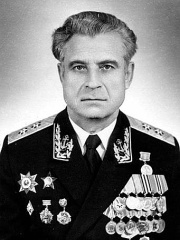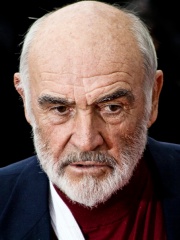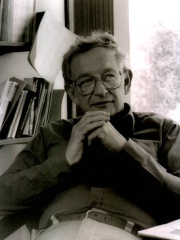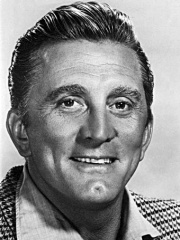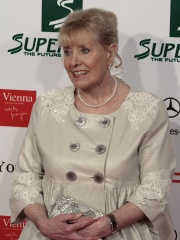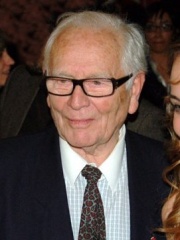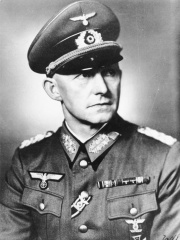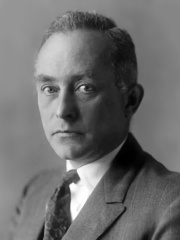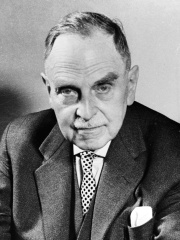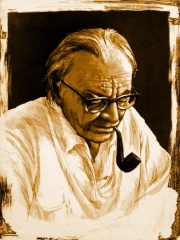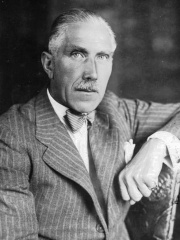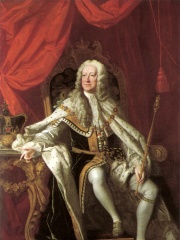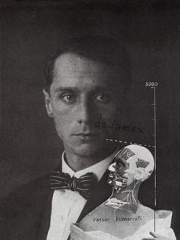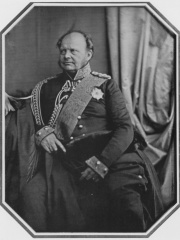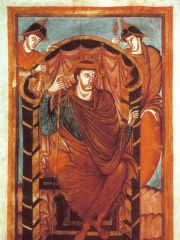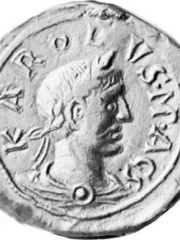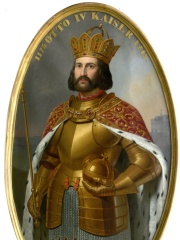POLITICIAN
Valéry Giscard d'Estaing
1926 - 2020

 Valéry Giscard d'Estaing
Valéry Giscard d'Estaing
Valéry René Marie Georges Giscard d'Estaing (UK: , US: ; French: [valeʁi ʁəne maʁi ʒɔʁʒ ʒiskaʁ dɛstɛ̃] ; 2 February 1926 – 2 December 2020), also known as simply Giscard or VGE, was a French politician who served as President of France from 1974 to 1981. After serving as Minister of Finance under prime ministers Jacques Chaban-Delmas and Pierre Messmer, Giscard d'Estaing won the presidential election of 1974 with 50.8% of the vote against François Mitterrand of the Socialist Party. His tenure was marked by a more liberal attitude on social issues—such as divorce, contraception and abortion—and by attempts to modernise the country and the office of the presidency, notably overseeing such far-reaching infrastructure projects as the TGV and the turn towards reliance on nuclear power as France's main energy source. Read more on Wikipedia
His biography is available in 104 different languages on Wikipedia (up from 103 in 2024). Valéry Giscard d'Estaing is the 638th most popular politician (down from 568th in 2024), the 169th most popular biography from Germany (down from 160th in 2019) and the 47th most popular German Politician.
Valéry Giscard d'Estaing is most famous for being the President of France from 1974 to 1981. He was also the President of the European Commission from 1985 to 1995.
Memorability Metrics
Page views of Valéry Giscard d'Estaing by language
Among POLITICIANS
Among politicians, Valéry Giscard d'Estaing ranks 638 out of 19,576. Before him are Malik-Shah I, Licinius, Emperor Taizong of Tang, Ferdinand III, Holy Roman Emperor, Henry II, Holy Roman Emperor, and Herbert Hoover. After him are Louis X of France, Ernest Augustus, King of Hanover, Ivar the Boneless, Maria Carolina of Austria, Irene of Athens, and Turhan Hatice Sultan.
Most Popular Politicians in Wikipedia
Go to all RankingsMalik-Shah I
1055 - 1092
HPI: 78.06
Rank: 632
Licinius
263 - 325
HPI: 78.06
Rank: 633
Emperor Taizong of Tang
598 - 649
HPI: 78.06
Rank: 634
Ferdinand III, Holy Roman Emperor
1608 - 1657
HPI: 78.06
Rank: 635
Henry II, Holy Roman Emperor
973 - 1024
HPI: 78.04
Rank: 636
Herbert Hoover
1874 - 1964
HPI: 78.01
Rank: 637
Valéry Giscard d'Estaing
1926 - 2020
HPI: 78.01
Rank: 638
Louis X of France
1289 - 1316
HPI: 78.00
Rank: 639
Ernest Augustus, King of Hanover
1771 - 1851
HPI: 77.97
Rank: 640
Ivar the Boneless
900 - 873
HPI: 77.97
Rank: 641
Maria Carolina of Austria
1752 - 1814
HPI: 77.97
Rank: 642
Irene of Athens
752 - 803
HPI: 77.97
Rank: 643
Turhan Hatice Sultan
1627 - 1683
HPI: 77.96
Rank: 644
Contemporaries
Among people born in 1926, Valéry Giscard d'Estaing ranks 8. Before him are Marilyn Monroe, Fidel Castro, Michel Foucault, Alfredo Di Stéfano, Ingvar Kamprad, and Jiang Zemin. After him are Leslie Nielsen, Thích Nhất Hạnh, Dario Fo, Ben Roy Mottelson, Vasily Arkhipov, and Donald A. Glaser. Among people deceased in 2020, Valéry Giscard d'Estaing ranks 8. Before him are Hosni Mubarak, Ennio Morricone, Sean Connery, Philip Warren Anderson, Kirk Douglas, and Betty Williams. After him are Qaboos bin Said al Said, Javier Pérez de Cuéllar, Pierre Cardin, Max von Sydow, Tabaré Vázquez, and David Prowse.
Others Born in 1926
Go to all RankingsMarilyn Monroe
ACTOR
1926 - 1962
HPI: 88.57
Rank: 2
Fidel Castro
POLITICIAN
1926 - 2016
HPI: 85.86
Rank: 3
Michel Foucault
PHILOSOPHER
1926 - 1984
HPI: 82.59
Rank: 4
Alfredo Di Stéfano
SOCCER PLAYER
1926 - 2014
HPI: 81.89
Rank: 5
Ingvar Kamprad
BUSINESSPERSON
1926 - 2018
HPI: 79.17
Rank: 6
Jiang Zemin
POLITICIAN
1926 - 2022
HPI: 79.12
Rank: 7
Valéry Giscard d'Estaing
POLITICIAN
1926 - 2020
HPI: 78.01
Rank: 8
Leslie Nielsen
ACTOR
1926 - 2010
HPI: 77.80
Rank: 9
Thích Nhất Hạnh
RELIGIOUS FIGURE
1926 - 2022
HPI: 77.07
Rank: 10
Dario Fo
WRITER
1926 - 2016
HPI: 76.74
Rank: 11
Ben Roy Mottelson
PHYSICIST
1926 - 2022
HPI: 76.12
Rank: 12
Vasily Arkhipov
MILITARY PERSONNEL
1926 - 1998
HPI: 75.89
Rank: 13
Donald A. Glaser
PHYSICIST
1926 - 2013
HPI: 75.85
Rank: 14
Others Deceased in 2020
Go to all RankingsHosni Mubarak
POLITICIAN
1928 - 2020
HPI: 82.43
Rank: 2
Ennio Morricone
COMPOSER
1928 - 2020
HPI: 81.73
Rank: 3
Sean Connery
ACTOR
1930 - 2020
HPI: 81.18
Rank: 4
Philip Warren Anderson
PHYSICIST
1923 - 2020
HPI: 79.35
Rank: 5
Kirk Douglas
ACTOR
1916 - 2020
HPI: 78.83
Rank: 6
Betty Williams
SOCIAL ACTIVIST
1943 - 2020
HPI: 78.16
Rank: 7
Valéry Giscard d'Estaing
POLITICIAN
1926 - 2020
HPI: 78.01
Rank: 8
Qaboos bin Said al Said
POLITICIAN
1940 - 2020
HPI: 77.20
Rank: 9
Javier Pérez de Cuéllar
POLITICIAN
1920 - 2020
HPI: 75.90
Rank: 10
Pierre Cardin
FASHION DESIGNER
1922 - 2020
HPI: 75.55
Rank: 11
Max von Sydow
ACTOR
1929 - 2020
HPI: 74.44
Rank: 12
Tabaré Vázquez
POLITICIAN
1940 - 2020
HPI: 74.39
Rank: 13
David Prowse
ACTOR
1935 - 2020
HPI: 74.00
Rank: 14
In Germany
Among people born in Germany, Valéry Giscard d'Estaing ranks 169 out of 7,253. Before him are George I of Great Britain (1660), Alfred Jodl (1890), Meister Eckhart (1260), Max Born (1882), Henry II, Holy Roman Emperor (973), and Otto Hahn (1879). After him are Carl Orff (1895), Franz von Papen (1879), Olaf Scholz (1958), George II of Great Britain (1683), Caroline of Ansbach (1683), and Max Ernst (1891).
Others born in Germany
Go to all RankingsGeorge I of Great Britain
POLITICIAN
1660 - 1727
HPI: 78.20
Rank: 163
Alfred Jodl
MILITARY PERSONNEL
1890 - 1946
HPI: 78.19
Rank: 164
Meister Eckhart
PHILOSOPHER
1260 - 1328
HPI: 78.10
Rank: 165
Max Born
PHYSICIST
1882 - 1970
HPI: 78.04
Rank: 166
Henry II, Holy Roman Emperor
POLITICIAN
973 - 1024
HPI: 78.04
Rank: 167
Otto Hahn
CHEMIST
1879 - 1968
HPI: 78.04
Rank: 168
Valéry Giscard d'Estaing
POLITICIAN
1926 - 2020
HPI: 78.01
Rank: 169
Carl Orff
COMPOSER
1895 - 1982
HPI: 77.97
Rank: 170
Franz von Papen
POLITICIAN
1879 - 1969
HPI: 77.94
Rank: 171
Olaf Scholz
POLITICIAN
1958 - Present
HPI: 77.93
Rank: 172
George II of Great Britain
POLITICIAN
1683 - 1760
HPI: 77.79
Rank: 173
Caroline of Ansbach
COMPANION
1683 - 1737
HPI: 77.65
Rank: 174
Max Ernst
PAINTER
1891 - 1976
HPI: 77.62
Rank: 175
Among POLITICIANS In Germany
Among politicians born in Germany, Valéry Giscard d'Estaing ranks 47. Before him are Frederick William IV of Prussia (1795), Friedrich Merz (1955), Lothair I (795), Agrippina the Younger (15), George I of Great Britain (1660), and Henry II, Holy Roman Emperor (973). After him are Franz von Papen (1879), Olaf Scholz (1958), George II of Great Britain (1683), Frederick William I of Prussia (1688), Charles the Fat (839), and Otto IV, Holy Roman Emperor (1175).
Frederick William IV of Prussia
1795 - 1861
HPI: 78.69
Rank: 41
Friedrich Merz
1955 - Present
HPI: 78.54
Rank: 42
Lothair I
795 - 855
HPI: 78.30
Rank: 43
Agrippina the Younger
15 - 59
HPI: 78.24
Rank: 44
George I of Great Britain
1660 - 1727
HPI: 78.20
Rank: 45
Henry II, Holy Roman Emperor
973 - 1024
HPI: 78.04
Rank: 46
Valéry Giscard d'Estaing
1926 - 2020
HPI: 78.01
Rank: 47
Franz von Papen
1879 - 1969
HPI: 77.94
Rank: 48
Olaf Scholz
1958 - Present
HPI: 77.93
Rank: 49
George II of Great Britain
1683 - 1760
HPI: 77.79
Rank: 50
Frederick William I of Prussia
1688 - 1740
HPI: 77.54
Rank: 51
Charles the Fat
839 - 888
HPI: 77.50
Rank: 52
Otto IV, Holy Roman Emperor
1175 - 1218
HPI: 77.49
Rank: 53
